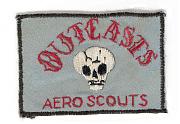Several of the Army's brightest and most articulate captains and majors of the early 1990s survived their outspoken forays into the world of contending ideas and are doing well in their careers as they climb toward their first star. Unfortunately, however, they read the career tea leaves and have now clammed up. Their lately developed reticence recalls to mind Liddell Hart's observation concerning young British uniformed intellectuals:
Ambitious officers, when they came in sight of promotion to the generals' list, would decide that they would bottle up their thoughts and ideas as a safety precaution until they reached the top and could put these ideas into practice. Unfortunately, the usual result, after years of repression for the sake of their ambition, was that when the bottle was eventually uncorked the contents had evaporated.
The Army is doubtless correct in insisting on the man of action as the predominant model for the combat commander-let there be no mistake about that. But it is dead wrong in assuming that uniformed intellectuals-- simply because they have not negotiated every wicket in a general officer qualification course that could only have been devised by Genghis Khan's G3-cannot be men and women of action and hence are unqualified to command the higher line echelons. Moreover, the Army is on questionable ground in assuming that those who have been anointed by a zero-defects performance at each of the stations of the cross are thereby fit to serve in every general officer slot, even those for which they obviously lack the necessary intellectual qualifications. Rather than denigrating and marginalizing the uniformed intellectual, the Army should hearken to President Bush's call for a "renewed spirit of innovation in our officer corps." It should implement the necessary promotion and assignment adjustments to assure that the intellectual potential of the officers' corps is identified, cultivated and exploited in optimal ways, which would include service at the highest echelons.
It is time finally to acknowledge that the Active Man and Contemplative Man do merge in many versatile people, and that the Army has as much need for the qualities of the latter as for the former. The intellectual man-and woman-have a vital role to play in all professional endeavor, not least military endeavor, and it is thus a fool's game to squander precious intellectual capital on the basis of a historical anti-highbrow shibboleth. The army that rejects seminal thinkers, thereby depriving itself of innovative ideas and the instruments for continuous intellectual self-renewal, will ultimately be a defeated army, vanquished in the wake of foes who adapt more wisely and quickly to the ever-evolving art and science of war.
), what would the most popular choice be today? If I were a betting man, my money would be on the whiskey. As an interesting omission, the author doesn't mention that Captain Hunt would go on to be Chief of Artillery for the Army of the Potomac and instrumental in the repulsing of Pickett's Charge at Gettysburg.



 "A Sherman can give you a very nice... edge."- Oddball,
"A Sherman can give you a very nice... edge."- Oddball, 



 Put in concrete terms the days of Generals Abizaid, Valenzuela, Woerner, and Loeffke, among others, are gone to come no more - until or unless we change the personnel system to make FAOs competetive for GO rank.
Put in concrete terms the days of Generals Abizaid, Valenzuela, Woerner, and Loeffke, among others, are gone to come no more - until or unless we change the personnel system to make FAOs competetive for GO rank.


 . I just finished presenting a paper on ethnographic knowledge in Greek-Roman-Byzantine PME, and you can really see the waves of use / non-use over a 2000 year period.
. I just finished presenting a paper on ethnographic knowledge in Greek-Roman-Byzantine PME, and you can really see the waves of use / non-use over a 2000 year period.




Bookmarks